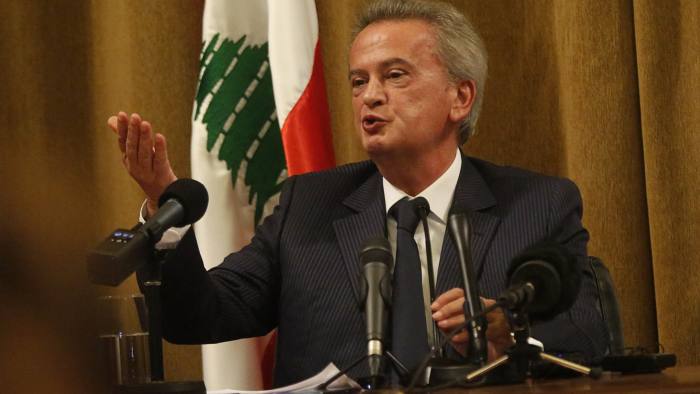Lebanon’s central bank chief Riad Salameh said on Monday that depositors’ money was safe in the country’s banks and they might soon be able to access some of their dollars.

Once ranked among the world’s more profitable lenders, Lebanon’s banks froze customers out of their deposits and blocked them from transferring cash abroad after a financial crisis erupted in late 2019.
“The system as we know it today has not collapsed,” Salameh told regional television network al-Arabiya’s Al Hadath channel.
“There have been no bankrupt banks,” he said.
Lebanese banks for years funneled funds from a scattered diaspora into state coffers in return for high interest rates.
But as Lebanon’s economic meltdown gathered pace and dollar remittances dried up, the financial system was starved of funding.
Salameh said that small depositors could start getting access to some of their dollars at the end of June.
The plan would involve releasing $50,000 per depositor, of which $25,000 would be cashed out in dollar bills and the remaining $25,000 in Lebanese pounds at the market price.
“The money will be released gradually. This will prove that foreign liquidity started returning to banks,” Reuters quoted him as saying.
Salameh also said foreign reserves required to support the country’s subsidy program were running out and that using mandatory reserves to fund the imports of basic goods would be legally challenging.
“The Central Bank of Lebanon does not have the authority to make those decisions,” he said.
Lebanon’s subsidy program cost it around $6 billion a year.
Asharq Al-Awsat

Leave a Reply
You must be logged in to post a comment.